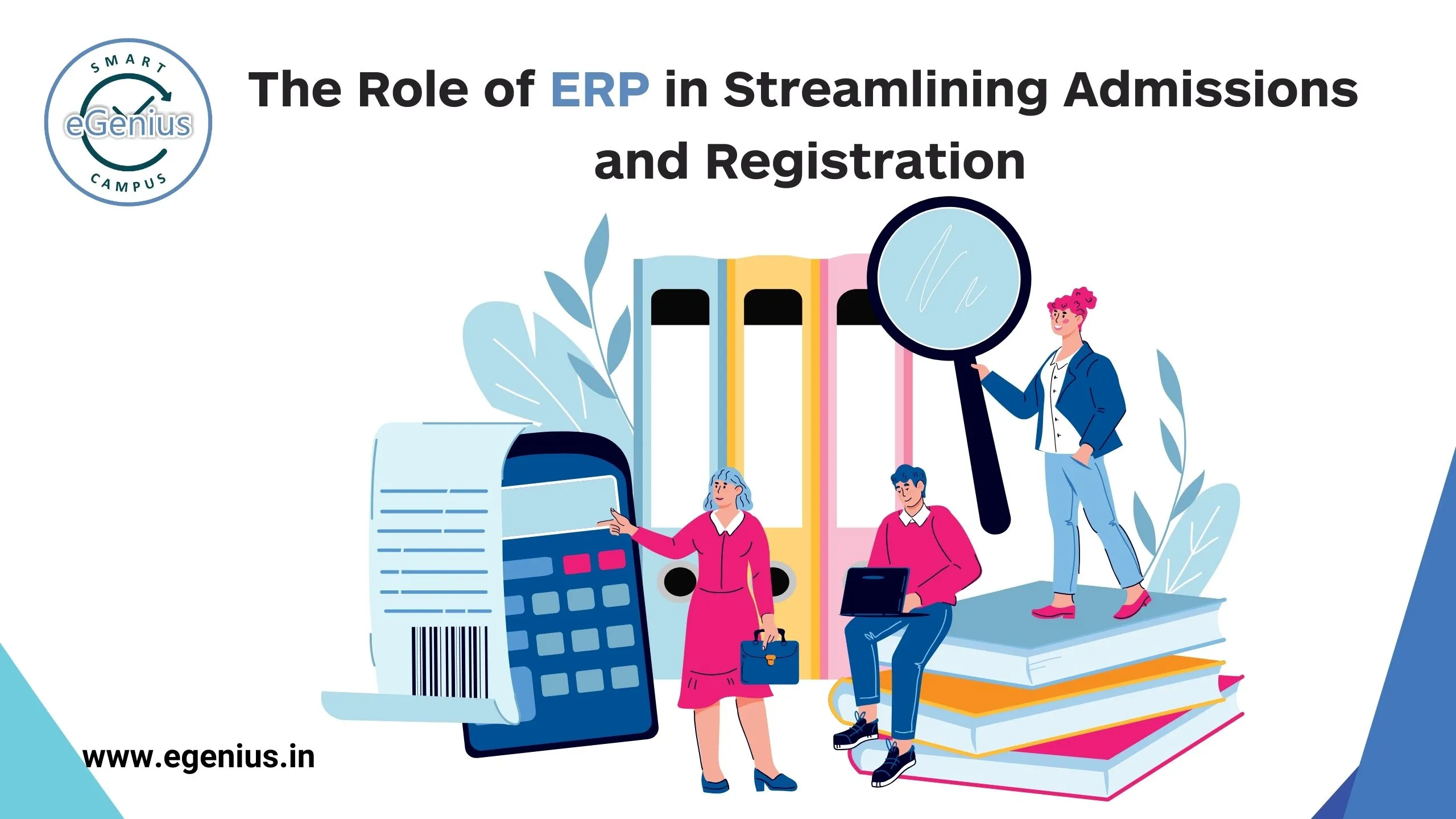In the modern tech landscape, Enterprise Resource Planning (ERP) system play a vital role in streamlining admissions and registration processes in educational institutions. These tools have become indispensable for enhancing efficiency and simplifying operations across sectors, including education. Universities and colleges heavily rely on robust admissions and registration procedures, highlighting the importance of effective student intake management. ERP systems serve as invaluable assets in optimizing these processes.
Understanding the Challenges in Traditional Admissions and Registration Processes:
- Manual data entry and paperwork: Traditional processes are plagued by manual data entry, leading to inefficiencies and errors.
- Communication gaps between departments: Siloed communication channels often result in delays and misunderstandings during the admissions process.
- Time-consuming processes leading to delays and errors: Lengthy procedures contribute to delays in student enrollment and increase the likelihood of errors.
- Lack of real-time data accessibility: Without real-time access to information, decision-making becomes challenging for administrators.
Role of ERP in Enhancing Admissions and Registration Processes:
- Automation of workflows: ERP systems lessen human work by doing recurring tasks like entering data and handling documents, which makes things more efficient.
- Centralized database management: ERP gathers all student information in one place, letting authorized staff from different departments easily reach it.
- Real-time data updates and accessibility: These lets administrators see current details like how many students are enrolled, if they are admitted, and whether courses are open, right as it happens.
- Integration with other systems (e.g., CRM (Customer Relationship Management), LMS): ERP easily merges with different systems. This aids in better data exchange and boosts the total working effectiveness.
- Streamlined communication channels: These systems create a single place for talking. This helps all departments work together better and share information easily.
Benefits of Implementing ERP in Admissions and Registration:
- Increased efficiency and accuracy: ERP automates processes, reducing manual errors and speeding up enrollment procedures.
- Reduction in administrative costs and resources: By automating tasks and centralizing data, t systems help institutionssave time and resources.
- Improved decision-making through data analytics: ERP provides valuable insights through data analytics, enabling administrators to make informed decisions.
- Scalability and adaptability to changing needs: These systems are scalable and can adapt to the evolving needs of educational institutions, supporting growth and innovation.
Future Trends and Innovations in ERP for Admissions and Registration:
- AI (Artificial Intelligence) and machine learning applications for predictive analytics: AI-powered analytics can help schools predict trends in registration and make the admissions process run more smoothly.
- Mobile-friendly interfaces for improved accessibility: Mobile integration makes services easier for students and workers to get to, so they can use admissions and registration tools from anywhere.
- Blockchain Technology for Secure Data Management: Blockchain enhances security and transparency in student data management. It minimizes the risk of fraud and tampering, ensuring accurate and reliable records. This technology promotes trust and integrity in managing student information.
ERP systems are transforming how schools handle admissions and registration. They make tasks automatic, gather data in one place, and boost communication. This helps ERP systems to boost precision, speed, and enjoyment for users. Schools using ERP can keep up with changes in student and administrator needs, making enrollment smoother and faster.
Unlock the power of seamless admissions and registration processes with eGenius! Visit our website to delve deeper into the transformative role of ERP systems in streamlining enrollment, ensuring efficiency, and empowering educational institutions for success.















